
What Makes a Tragic Hero Tragic?
by WiseFool
All tragedies need a tragic hero or heroine, but what makes a character tragic? Who are the most famous tragic heroes and what do they have in common?
Tragedy: When The Feeling's Gone and You Can’t Go On
My apologies to The Bee Gees
First things first, what is a tragedy? Well, in theatrical and literary terms, it’s a devastating event, or string of events, that cause the downfall of a protagonist.
What’s That You Say, Aristotle?
Aristotle's views on tragedy have dictated every medium of drama
So, what makes a tragic hero or heroine? To answer that question, we need to turn to the authority on drama: Aristotle. In Poetics, Aristotle sketched out the template from which he believed true tragedy was made. He also suggested that there are some rules to which all tragic heroes must conform.
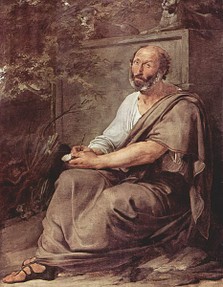
The tragic hero or heroine must evoke pity or fear in an audience. In order to do this effectively, the tragic protagonist must fit a particular character type.
He, or she, must be a person to whom we can relate - therefore, a tragic hero cannot be unrealistically virtuous.
However, he or she cannot be evil either, otherwise we will not feel empathy for their plight.
In fact, a tragic hero must be morally blameless for his misfortune (this part of Aristotle’s prescription has been interpreted rather more loosely by some playwrights, as you’ll see below).
Tragic protagonists meet with a downfall and, often, death, which is precipitated by a fatal flaw (hamartia) that causes him or her to perpetrate some unintended, although usually pretty horrific, act.
 |  |  |
| The Philosophy of Tragedy: From Plato... | Tragedy: Confronting the Unthinkable Only $15.25 | The Birth of Tragedy Only $5.99 |
Five Famous Tragic Heroes and Heroines
To give all that some context, let’s take a look at some of the most famous tragic protagonists and explore whether or not they fit into Aristotle’s template.
Oedipus
Aristotle’s favourite tragic hero was Oedipus - in fact, as far as he was concerned, Oedipus Rex is the most perfect example of tragedy. Of course, we should bear in mind that he has missed out on a subsequent two millennia of plays, so perhaps he would change his mind if he were around now.
Anyway, Oedipus is, on the face of it, an all-around good guy. However, it is his arrogance, or hubris, which causes him to leave his presumed parents’ home, kill his real father and marry a beautiful older woman, who turns out to be his mother.
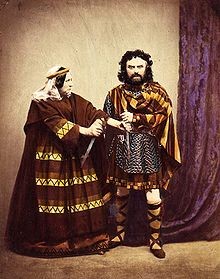 Macbeth and Lady Macbeth |
Macbeth
Macbeth is problematic in terms of fitting the Aristotelian prescription, because he is arguably not on morally safe ground in killing Duncan. However, he is not all bad and it is his hamartia of ambition that culminates in his downfall.
By no stretch of the imagination, can he be described as blameless, in his downfall - but it seems that Shakespeare foregoes this part of Aristotle’s view on tragedy in favour of creating a tragic hero who is extremely human. Subsequently, despite the fact that his actions are morally dubious (to say the least), his downfall still prompts empathy (and perhaps a little fear) from an audience.
Phedre (Phaedra)
17th century tragic drama from playwright Jean Racine, who borrows from Greek mythology (Phaedra). Phedre is another tragic protagonist who is not morally pure; thanks to her incestuous desires. However, this is thanks to a curse - so, perhaps we can forgive her for it.
It is the hereditary curse, coupled with her husband’s infidelity, that lead her to make a series of unwise decisions, which culminate in her inescapable downfall.
 | Phaedra (MGM Limited Edition Collection) The wife of a Greek shipping tycoon has a love affair with her stepson.This product is manufactured on demand using DVD-R recordable media. Amazon.com's standard return policy ... |
Joe Keller
Moving further away from Aristotle, we shift into ‘modern tragedy’ territory. However, Arthur Miller’s All My Sons, remains faithful to many of Aristotle’s views, including the three unities.
The main difference in modern tragedies, is that the tragic hero can now be an ‘ordinary’ man or woman. Previously, it was the downfall of a man of high status that constituted tragedy.
Joe Keller lies about his involvement in shipping damaged aircraft parts, which caused the deaths of 21 airmen during World War II, for three years. On one sunny afternoon, the truth finally emerges and Joe justifies his actions, by telling his family that he did it for them. His efforts to prioritise moral obligations then lead him to commit suicide.
Mrs Johnstone
Willy Russell’s Mrs Johnstone’s is a typical Liverpudlian single mother, struggling to get by, but doing the best she can for her children.
When she is forced to give one of her twin boys away, it is superstition which causes her to remain silent. Years later, in a desperate bid to stop the son she kept from murdering his twin brother, she blurts out the truth.
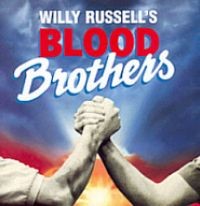 Poster for Blood Brothers |
So, as you can see, tragic heroes and heroines differ greatly. However, they all have a few things in common. Things that comply with Aristotle's vision of tragedy and things that, quite frankly, make them miserable. But that's why we love them!
You might also like
Romeo and Juliet-the Gang WarsRomeo and Juliet is often thought of as a romance, but Baz Luhrmann's 1996 mo...
10 Different Versions of The Beauty and the BeastThe Beauty and the Beast is among the most popular fairy tales with thousand ...
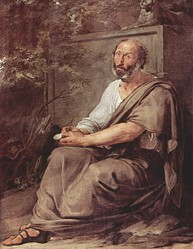

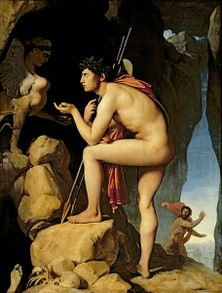
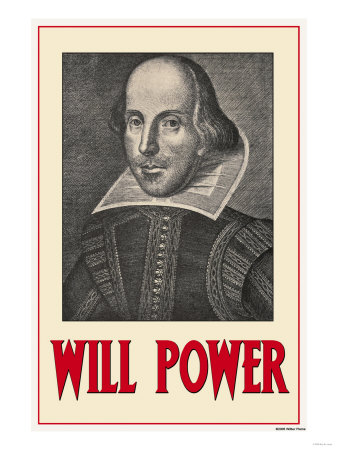
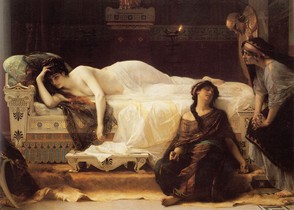
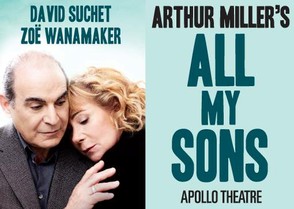

 How to Avoid College Debton 07/31/2014
How to Avoid College Debton 07/31/2014
 Was Charlotte Bronte Jealous of her Sister Anne?on 07/15/2014
Was Charlotte Bronte Jealous of her Sister Anne?on 07/15/2014
 Whose Side is Cancer Research UK on?on 07/06/2014
Whose Side is Cancer Research UK on?on 07/06/2014
 A Plot Summary of Electra by Sophocleson 07/05/2014
A Plot Summary of Electra by Sophocleson 07/05/2014

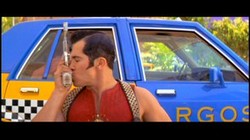
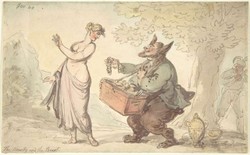
Comments
Hi Jo, thanks for visiting. You're right, of course, Hamlet is a big 'un. For my money, he's a bit of a whinger, but he is, undoubtedly, among the tragic "in-crowd".
When I think tragic hero, Hamlet is the first person who comes to mind. A bit cliched, I know!